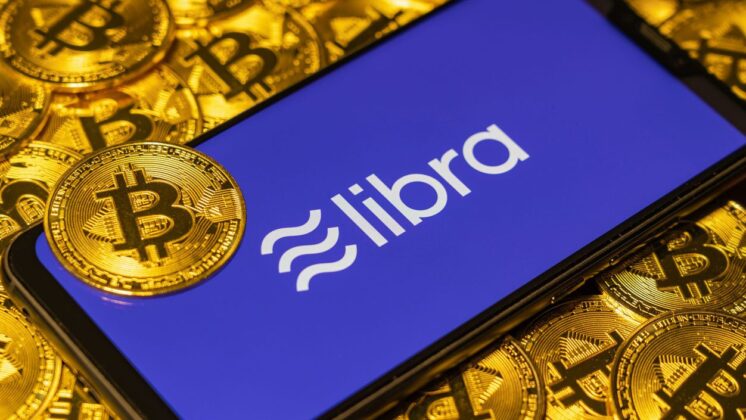Facebook is nearly three years into the development of Libra, its very own virtual currency. As the project advances, Libra has become a hot topic in global politics. Governments around the world have come out in opposition to the release, set for 2020.
After July’s G7 meeting of economic leaders, Bank of Japan Governor Haruhiko Kuroda stated that Libra could have a significant impact on the global economy, and that “countries must seek a globally coordinated response.”
German Finance Minister Olaf Scholz went further, insisting that “the issue of a currency does not belong in the hands of a private company because it is a core feature of a sovereign state.”
Facebook shares had been relatively steady until the G7 take on Libra, after which they dropped…but only for a week. It seems the market isn’t so concerned about the G7 warning.
According to its mission, Libra is meant to serve as “a simple global currency and financial infrastructure that empowers billions of people.” It even claims the lofty goal of helping “people everywhere…live better lives.” If these are really the goals of Libra, this this mean the world’s finance leaders jumping at shadows, or is there a reason to believe Libra will disrupt the global economy—and not for the better?
The advantages of Libra
The benefits of Libra are largely obvious: cheap and convenient payment services for people around the world. People who don’t or can’t have bank accounts will gain access to financial services. This could describe as much as one third of the world’s adult population.
Like other virtual currencies, the basic technologies used for Libra are blockchain and advanced cryptography. But unlike other currencies, Libra aims to avoid price fluctuations by anchoring itself to a basket of assets, including “bank deposits and government securities in currencies from stable and reputable central banks.” This sets it apart from, say, Bitcoin, which fluctuates wildly in response to supply, demand, and speculation. In that sense, Libra is somewhat similar to a money market fund.
To prevent a Facebook monopoly of Libra, the currency will fall under the neutral control of the Libra Association, an independent nonprofit with big-name members that include Visa, Vodafone, and Uber.
The disadvantages of Libra
Stacking the advantages against existing virtual currencies, Libra doesn’t seem to be doing anything particularly revolutionary. So why are politicians up in arms over Libra entering the market? What’s the big deal?
There are, so to speak, three big deals.
The first concern is the very real possibility of Libra being used for criminal purposes such as money laundering. Economic sanctions and policies could easily weaken with the emergence of a currency that a country cannot control. Will the lack of governmental regulation lead to freedom or anarchy?
Other currencies share similar issues, but Libra poses unique risks simply because Facebook is behind it. The backing of an IT giant with more than 200 million monthly active users is hardly a trivial factor. The name and reach of Facebook give Libra a significant boost in the market.
The second major concern is regarding privacy, an issue that has plagued Facebook with scandals since early 2018. There have been leaks and abuses that the company is still fighting to correct. Facebook’s plan to develop Calibra, a digital wallet dedicated to Libra, may be more of a cause for concern than a reassurance. Calibra will be linked to Facebook Messenger, and it’s still unclear how personal information will be handled.
The third concern is over the financial industry. As fintech and digital currencies march onward in general, the financial industry is ever cautious about erosion from advancements out of Silicon Valley. The release of Libra presents a major concern in this area.
What does it all mean?
The concerns, while real, are hardly a reason to demand a halt of Libra’s development. After all, the benefits are huge. Finance is sure to become more convenient if managed correctly. Perhaps, when it comes to currency development, it’s time for countries—essentially, organizations with creditworthiness and military power—to allow other players on to the field.
Essentially, the finance industry finds itself in a transition period. The question is not so much whether Facebook should enter, but what it should do to ensure that its entry is smooth and secure.
The company’s first responsibility is to communicate. If things go wrong, it will surely be due to moving too quickly and failing to share information.
Part of this communication must be with governing bodies. Facebook is obligated to communicate with the authorities and put measures in place to prevent money laundering and bolster security. Some politicians do, in fact, support Libra, and that number is growing. This should be viewed as encouragement to work together for positive ends.
After all, everyone who uses Facebook understands how important it is to have friends.



